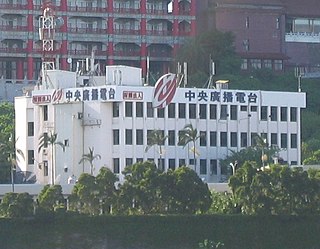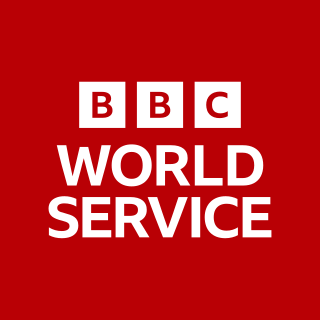
The BBC World Service is an international broadcaster owned and operated by the BBC. It is the world's largest external broadcaster in terms of reception area, language selection and audience reach. It broadcasts radio news, speech and discussions in more than 40 languages to many parts of the world on analogue and digital shortwave platforms, internet streaming, podcasting, satellite, DAB, FM and MW relays. In 2015, the World Service reached an average of 210 million people a week. In November 2016, the BBC announced that it would start broadcasting in additional languages including Amharic and Igbo, in its biggest expansion since the 1940s.
International broadcasting, in a limited extent, began during World War I, when German and British stations broadcast press communiqués using Morse code. With the severing of Germany's undersea cables, the wireless telegraph station in Nauen was the country's sole means of long-distance communication.

NHK World-Japan is the international arm of the Japanese public broadcaster NHK. Its services are aimed at the overseas market, similar to those offered by other national public-service broadcasters, such as the British BBC, France 24, or the German DW. Contents are broadcast through shortwave radio, satellite, and cable operators throughout the world, as well as online and through its mobile apps. NHK World-Japan is also available on DirecTV channels 322 and 2049. It is headquartered in Tokyo.
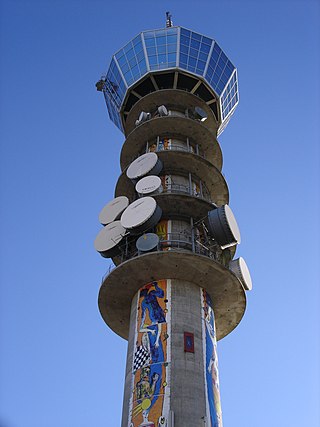
Radio broadcasting is the broadcasting of audio (sound), sometimes with related metadata, by radio waves to radio receivers belonging to a public audience. In terrestrial radio broadcasting the radio waves are broadcast by a land-based radio station, while in satellite radio the radio waves are broadcast by a satellite in Earth orbit. To receive the content the listener must have a broadcast radio receiver (radio). Stations are often affiliated with a radio network that provides content in a common radio format, either in broadcast syndication or simulcast, or both. Radio stations broadcast with several different types of modulation: AM radio stations transmit in AM, FM radio stations transmit in FM, which are older analog audio standards, while newer digital radio stations transmit in several digital audio standards: DAB, HD radio, DRM. Television broadcasting is a separate service that also uses radio frequencies to broadcast television (video) signals.
Public broadcasting involves radio, television and other electronic media outlets whose primary mission is public service. Public broadcasters receive funding from diverse sources including license fees, individual contributions, public financing and commercial financing, and avoid political interference or commercial influence.
Digital radio is the use of digital technology to transmit or receive across the radio spectrum. Digital transmission by radio waves includes digital broadcasting, and especially digital audio radio services.
Radio Canada International (RCI) is the international broadcasting service of the Canadian Broadcasting Corporation (CBC). Prior to 1970, RCI was known as the CBC International Service. The broadcasting service was also previously referred to as the Voice of Canada, broadcasting on shortwave from powerful transmitters in Sackville, New Brunswick. "In its heyday", said Radio World magazine, "Radio Canada International was one of the world's most listened-to international shortwave broadcasters". However, as the result of an 80 percent budget cut, shortwave services were terminated in June 2012, and RCI became accessible exclusively via the Internet. It also reduced its services to five languages and ended production of its own news service.
Digital terrestrial television is a technology for terrestrial television in which land-based (terrestrial) television stations broadcast television content by radio waves to televisions in consumers' residences in a digital format. DTTV is a major technological advance over the previous analog television, and has largely replaced analog television broadcast, which had been in common use since the middle of the 20th century. Test broadcasts began in 1998 with the changeover to DTTV which began in 2006 and is now complete in many countries. The advantages of digital terrestrial television are similar to those obtained by digitising platforms such as cable TV, satellite, and telecommunications: more efficient use of limited radio spectrum bandwidth, provision of more television channels than analog, better quality images, and potentially lower operating costs for broadcasters.
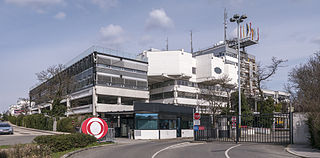
Österreichischer Rundfunk is an Austrian national public broadcaster. Funded from a combination of television licence fee revenue and limited on-air advertising, ORF is the dominant player in the Austrian broadcast media. Austria was the last country in continental Europe after Albania to allow nationwide private television broadcasting, although commercial TV channels from neighbouring Germany have been present in Austria on pay-TV and via terrestrial overspill since the 1980s.
Free-to-air (FTA) services are television (TV) and radio services broadcast in unencrypted form, allowing any person with the appropriate receiving equipment to receive the signal and view or listen to the content without requiring a subscription, other ongoing cost, or one-off fee. In the traditional sense, this is carried on terrestrial radio signals and received with an antenna.
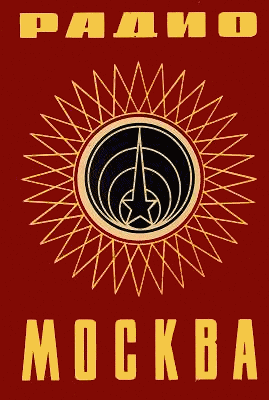
Radio Moscow, also known as Radio Moscow World Service, was the official international broadcasting station of the Union of Soviet Socialist Republics until 1993, when it was reorganized into Voice of Russia, which was subsequently reorganized and renamed into Radio Sputnik in 2014. At its peak, Radio Moscow broadcast in over 70 languages using transmitters in the Soviet Union, Eastern Europe, and Cuba.

RIAS was a radio and television station in the American Sector of Berlin during the Cold War. It was founded by the US occupational authorities after World War II in 1946 to provide the German population in and around Berlin with news and political reporting.
International religious television broadcasters broadcast from a host nation to another nation or nations. Such operations are mostly operated from the United States of America, Portugal and Italy, in conjunction with a religious organization having links to many churches or shrines who produce their own programs. The following is a list of such broadcasters with links to entries about each one:
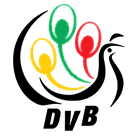
The Democratic Voice of Burma is one of Myanmar's largest independent media organisations. DVB was founded as a non-profit media organization based in Oslo, Norway and Chiang Mai, Thailand. Run by Burmese expatriates, it made radio and television broadcasts aimed at providing uncensored news and information about Burma. Since 2012 DVB gradually moved back into Burma, where it became one of the country's largest and most well-respected TV broadcasters. In March 2021, the organisation was banned by Burma's military dictatorship and moved back underground.
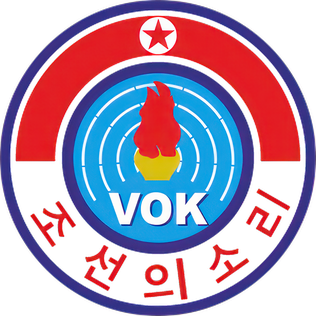
Voice of Korea is the international broadcasting service of North Korea. It broadcasts primarily information in Chinese, Spanish, German, English, French, Russian, Japanese and Arabic. Until 2002 it was known as Radio Pyongyang. The interval signal is identical to that of Korean Central Television.

Radio Nacional de España is the national state-owned public service radio broadcaster in Spain.
KBS World Radio is the official international broadcasting station of South Korea. Owned by the Korean Broadcasting System, the station broadcasts news and information in 11 languages: Korean, English, Chinese, Japanese, Indonesian, Arabic, Vietnamese, Russian, German, French and Spanish.

Radio Exterior de España (REE) or simply Radio Exterior is a Spanish free-to-air radio station owned and operated by Radio Nacional de España (RNE), the radio division of state-owned public broadcaster Radiotelevisión Española (RTVE). It is the corporation's international radio service, it was launched on 15 March 1942, and is considered to be Spain's equivalent to the BBC World Service, Deutsche Welle and Radio Canada International.







